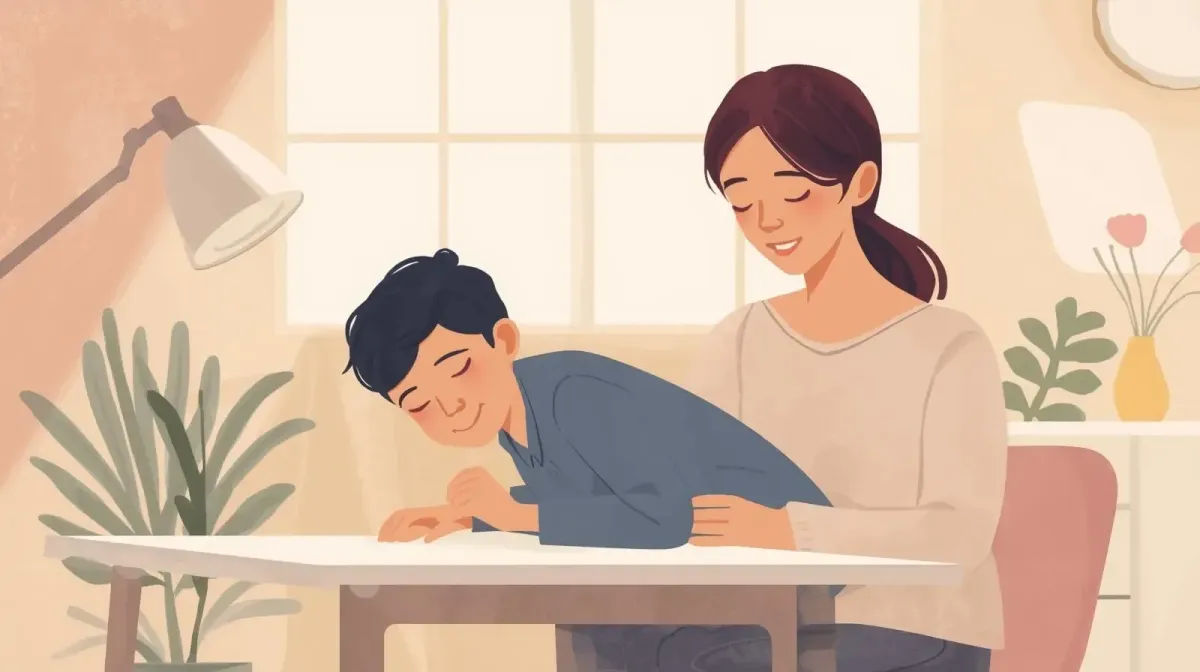
7 Ways to Help Your Child Manage ADHD Naturally (Without Medication)
This article is for supportive and educational purposes only. It does not replace professional medical advice, diagnosis, or treatment. If you have concerns about your child’s health or development, please speak with your GP, paediatrician, or a qualified specialist.
How to Help Your Child Manage ADHD Naturally (Without Medication)
A warm, mother-to-mother message: You’re not alone. Truly - you’re not.
If you’re reading this, chances are you’re navigating questions, worries, maybe even guilt that keeps you awake at night. You’re wondering whether your child’s challenges are “normal”, whether you’re doing enough, whether there’s something more you can do that doesn’t involve jumping straight into medication.
And as a parenting coach - and a mum myself - I want you to take a slow breath here.
You are already doing something powerful: seeking understanding instead of judgment, support instead of shame.
You're in the right place.
If you want a deeper understanding of ADHD before diving into natural support, start here:
👉 Understanding ADHD: 3 Defining Traits People Miss
Why Natural Approaches Matter
Medication can be incredibly helpful for many children.
But for others — or before reaching that decision — parents often want to try supporting ADHD without medication first.
And research supports this approach.
According to the NHS, behavioural strategies, structure, predictable routines, physical activity, and emotional coaching are considered core interventions for younger children before medication is even discussed.
The NICE guidelines also recommend parent support, lifestyle changes, and environmental adjustments as first-line strategies for many children.
So yes — there are natural ways to help your child thrive.
And no — you’re not “avoiding treatment.”
You’re building a strong foundation.
Let’s walk through the most effective ones.
7 Natural Ways to Support a Child with ADHD (Without Medication)
1. Create Consistent Routines - Predictability is Peace
Children with ADHD often struggle with transitions, shifting attention, and starting tasks.
A consistent routine removes anxiety and builds safety.
What helps:
A visual schedule for mornings, after-school, and bedtime
Prepping school bags/clothes the night before
10–15 min “soft landing” time after school
Predictable wake-up and sleep patterns
The CDC states that consistent structure reduces behavioural difficulties and supports emotional regulation in ADHD children.
Source: https://www.cdc.gov/ncbddd/adhd/
If you need help building gentle structure, this might support you:
👉 Conscious Parenting Principles Every Parent Should Know
2. Use Emotional Co-Regulation Instead of Punishment
ADHD isn’t “naughty behaviour.”
It’s a nervous system that reacts faster, feels deeper, and struggles to pause.
Instead of:
“Why won’t you listen?”
Try: “I’m here. Let’s calm your body first, then we’ll figure it out together.”
Children borrow our nervous system until they can regulate their own.
Use:
Slow voice
Soft facial expression
Physical grounding (hand on back if they accept touch)
Naming emotions (“Your body feels fast right now - I’m with you.”)
This is the essence of conscious parenting - and it transforms behaviour.
3. Reduce Hidden ADHD Triggers at Home
Many parents don’t realise how much the environment matters.
Common triggers:
Bright screens before bedtime
High-sugar snacks
Chaotic or loud spaces
Too many toys
Overstimulating routines
Small changes that help:
Bedtime screens off 1 hour before sleep
Calming background music during homework
A quiet “focus corner” instead of a crowded desk
Decluttered play areas
Daily outdoor time
According to Harvard Health, physical activity alone reduces ADHD symptoms, improves mood, and promotes concentration.
4. Support the ADHD Brain with Nutrition
We’re not talking about strict diets.
Just gentle, supportive eating patterns.
Research suggests these can help:
Omega-3 fatty acids
Protein-rich breakfasts
Whole grains
Magnesium + zinc
Limiting artificial food dyes (linked to hyperactivity in some children)
The NHS also notes that balanced diets support energy, mood, and attention regulation.
Foods to include:
Salmon, walnuts, chia seeds
Eggs, oats, Greek yoghurt
Berries and leafy greens
Beans, lentils, wholegrain pasta
Small daily changes → noticeable long-term effects.
5. Teach “Body Breaks” to Release Excess Energy
Children with ADHD need movement — not as a reward, but as regulation.
Try this simple pattern:
This matches the “brain-break” research used in UK classrooms.
And yes — it works at home too.
6. Build ADHD-Friendly Study Routines
Private school mums often share the same worry:
“Homework takes hours and ends with tears — for both of us.”
Here’s the truth: ADHD brains are not wired for long, static homework sessions.
What helps:
Shorter study bursts
Breaking tasks into micro-steps
Using a visual checklist
Homework first → then screen time
Daily outdoor play before homework
A small change that reduces battles:
Start homework within 30 minutes of returning home while their brain is still “in school mode.”
7. Strengthen Connection Before Correction
This is the parenting shift that changes everything.
When a child feels understood, their behaviour improves.
When a child feels judged, it intensifies.
Use:
“I see how hard you're trying.”
“Let’s figure this out together.”
“Your feelings make sense.”
“I love you even when things are difficult.”
Connection gives a child the safety to try again.
Medication cannot replace connection.
But connection can replace many battles.
When Should You Consider Professional Help?
If your child struggles with:
intense emotional outbursts
constant school complaints
low self-esteem
persistent inattention
disruptive behaviour
anxiety or sleep issues
friendships or social skills
…a Parenting Coach or Child Coach can help guide both you and your child.
You can explore the basics of ADHD here:
👉 https://www.littleoneslifecoach.com/adhd
You may also be wondering:
👉 Is ADHD a Disability in the UK?
This article can help clarify school protections and support options.
And if you need personalised support, I’m here.
💛 Book a Free 15-Minute Parent Support Call
Sometimes one conversation can bring more clarity than weeks of worrying.
If you’d like gentle guidance, I’m here to help you understand your child’s needs and create a plan that feels right for your family.
👉 Book your free call
